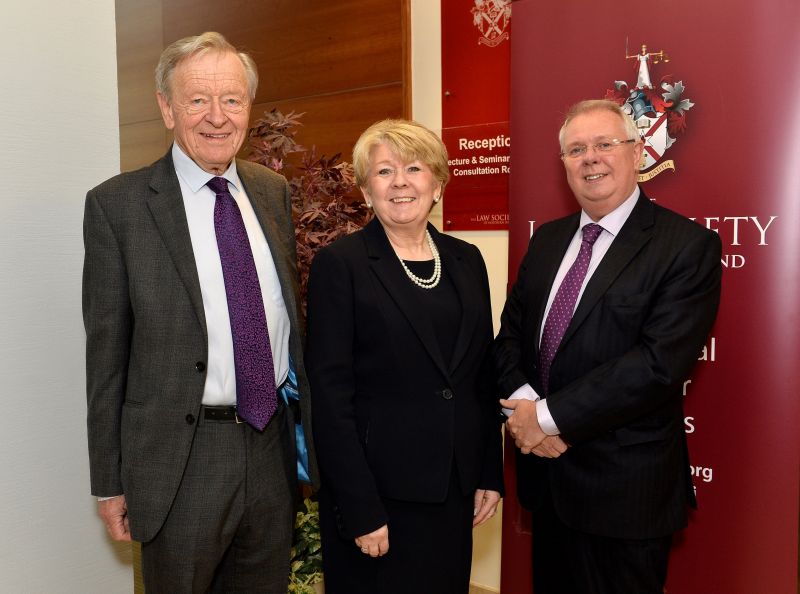NI: Immigration law conference focuses on impact of Brexit on migrants

The impact of Brexit on migrants living and seeking residence in Northern Ireland was one of the themes of a Belfast conference hosted by the Immigration Practitioners’ Group in the Law Society of Northern Ireland.
Over 90 delegates from Government, community, voluntary organisations and the legal profession attended ‘Immigration Law Conference - Borders and Blurred Lines’ at Law Society House.
This is the first time that such a conference has been held providing a platform to examine the legal, social and human rights issues around immigration.
Those attending the conference had an opportunity to hear from high-profile speakers including one of the UK’s leading human rights and immigration advocates, Labour peer Lord Dubs.
Other speakers at the conference included Mr Justice McCloskey; Professor Colin Harvey from QUB School of Law; Maria McCloskey, chair of the Immigration Practitioners’ Group; and Professor Sue Clayton, director of the award-winning film, Calais Children: A Case to Answer.
Commenting on the event, Eileen Ewing, president of the Law Society, said: “The importance of this immigration conference is underscored by Brexit and what will happen next.
“Unfortunately in the scrum of political negotiations, sound bites and comments the real story of the impact of Brexit on the most vulnerable and in need has been forgotten and lost.
“Part of that story is what impact Brexit will have on those migrants already living in Northern Ireland as well as those seeking residence. What are their concerns and issues, and who is fighting to ensure that they are heard?
“This conference provides a platform for them and the many members of the voluntary, community and legal sectors who continue to fight to ensure that they receive representation and support at every level.”
Professor Harvey said: “This is a timely, welcome and significant event. It is vital that we continue to engage in debate on the human rights and equality implications of immigration law and policy, especially in light of Brexit. There is reason to be deeply concerned about the current and long-term consequences.”
Ms McCloskey added: “The immigration law conference is the first in a series of initiatives undertaken by the Immigration Practitioners Group to provide a forum for discussion and information sharing amongst those at the very epicentre of immigration issues in Northern Ireland. We hope that this will assist in a joined up approach to tackling immigration issues.”










